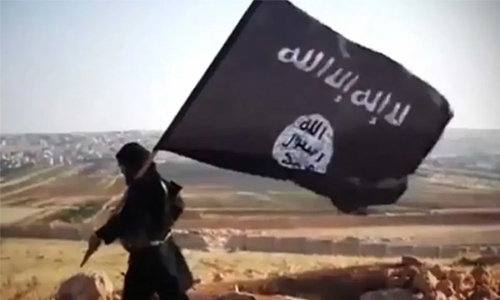Not defeated, Islamic state transforming: experts
Even as the last pockets of resistance in eastern Syria hold their ground, the Islamic State group is shapeshifting into a new, but no less dangerous, underground form, experts warn. Also known as ISIS, or the Islamic State in Iraq and Syria, the group had long been ready to cede the territory it once held in its self-styled “caliphate,” and has already begun the switch to a more clandestine role, closer to its roots.
“ISIS anticipated its battlefield defeat and the loss of the caliphate and prepared accordingly,” said Bruce Hoffman, a terrorism expert at Georgetown University in Washington. “Hundreds of ISIS fighters were able to flee Syria, bribe their way through Syria to Turkey and thereby disappear,” he said. “Beneath the surface, ISIS has always played the long game.” In a recent study entitled “ISIS’s Second Resurgence,” Brandon Wallace and Jennifer Cafarella of the Washington-based Institute for the Study of War (ISW) said the jihadist group “has already restructured its operations to return to a regional insurgency.”
“ISIS is finding new sources of revenue and rebuilding command-and-control over its scattered remnant forces in order to prepare for a future large-scale insurgency in both Iraq and Syria,” the report said.
‘We’ll be back’
The group has managed to smuggle funds to several countries around the Middle East, using front companies such as car dealerships, electronics stores, pharmacies and currency exchanges that it established in Iraq, experts said. “We’re entering a very risky period,” said Seth Jones of the Center for Strategic and International Studies (CSIS). “I have no faith that ISIS has been crushed, defeated.” “They already have gone underground,” he said. “They are doing what everybody does who faces a better equipped opposition, with air and naval capabilities: they have to face Russian air strikes, cruise missiles.”
“What do you do in a case like that?” he said. “You disperse, you don’t operate in platoon-size positions the way they did in 2014, you go underground, you build your clandestine network, you conduct targeted assassinations, IEDs [roadside bombs] and you wait for opportunities.” Data collected by the CSIS show that in some provinces in Iraq, such as Kirkuk in the northeast, the number of attacks attributed to IS doubled last year from 2017, with an average of 75 a month. The group has regularly picked off tribal leaders, government officials, police and members of the armed forces.
In a television interview last month, the Iraqi Kurdish leader Massud Barzani said that IS “is not defeated and will not be ended easily.” “IS was on the ground, now they are underground,” Barzani said, noting that they had returned to many areas they had been driven out of even stronger than before. An Islamic State fighter in Syria, who spoke to The New York Times via WhatsApp, echoed Barzani’s grim message.
“Do you think the Americans can defeat the caliphate?” said the fighter, who identified himself only as Yehya. “It’s a war of attrition. When the coalition stops the air strikes, we will return immediately.” “We didn’t leave for good. We’re still in Syria, even in the areas that you think we left. We still have our suicide bombers ready to attack. Our informers are active,” he said.
Related Posts

